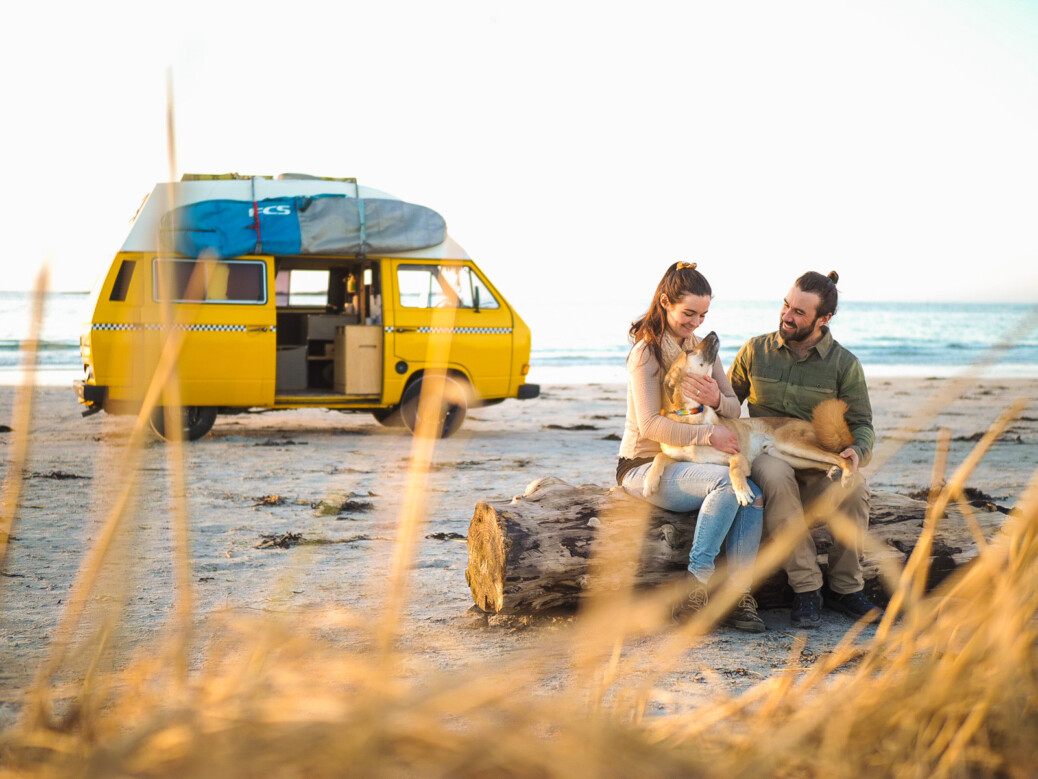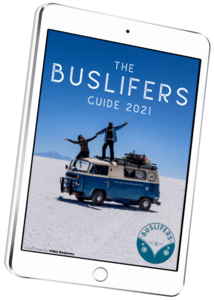There’s no easy way around the subject of reducing your carbon footprint when it comes to travel. According to Sustainable Travel International, transport contributes to 49% of the Global tourism carbon footprint, which is a stat that continues to grow as more people choose to travel internationally.
As a Buslifer in a changing climate, you may therefore be asking yourself the fundamental question; How can I reduce my carbon footprint while on the road?
For any of your struggling to get your head around this tricky topic, In this article, we’ve compiled a list of tips to help you reduce the environmental impact your VW Bus has on our planet.
Are you already doing your bit to live a sustainable life on the road? Have a read of our article How to live a sustainable Buslife to discover even more ways to enjoy an ethical lifestyle.
Service your VW Bus
Here at Buslifers, one of our top life mantras is ‘A serviced VW Bus is a happy VW Bus.’ By ensuring you service your vehicle regularly, it will run more efficiently. Helping you keep your carbon footprint to a minimum and have less impact on our beautiful planet that you love to explore.



If mechanics aren’t your strongest skill, we recommend booking your vehicle into a garage where they can carry out some routine maintenance and run through a checklist that covers areas including tires, engine oil, fluid levels, and lights.
However, if you would like to learn how to service your VW bus yourself, we recommend ordering a Haynes Manual.
Discover more reasons why you should be servicing your VW and how in our ultimate guide here.
Reduce the weight of your VW Bus
It’s been revealed in a recent study that if we all strive to reduce the weight of our vehicles can help us to cut Co2 emissions by 40% by 2050!
With this figure in mind, we can all help to do our bit as part of the Buslifers community by reducing the weight of our VW Buses. There are several ways we can do this, for example:
- Use lightweight materials for insulation, flooring, and worktops when converting or refurbishing a VW Bus.
- Consider lightweight alternatives for batteries and solar power. Check out these flexible solar panels that are an ideal alternative to traditional power sources.
- Pack only essentials needed for a road trip.
For more helpful hints and tips when it comes to renovating your VW Bus, read our article.
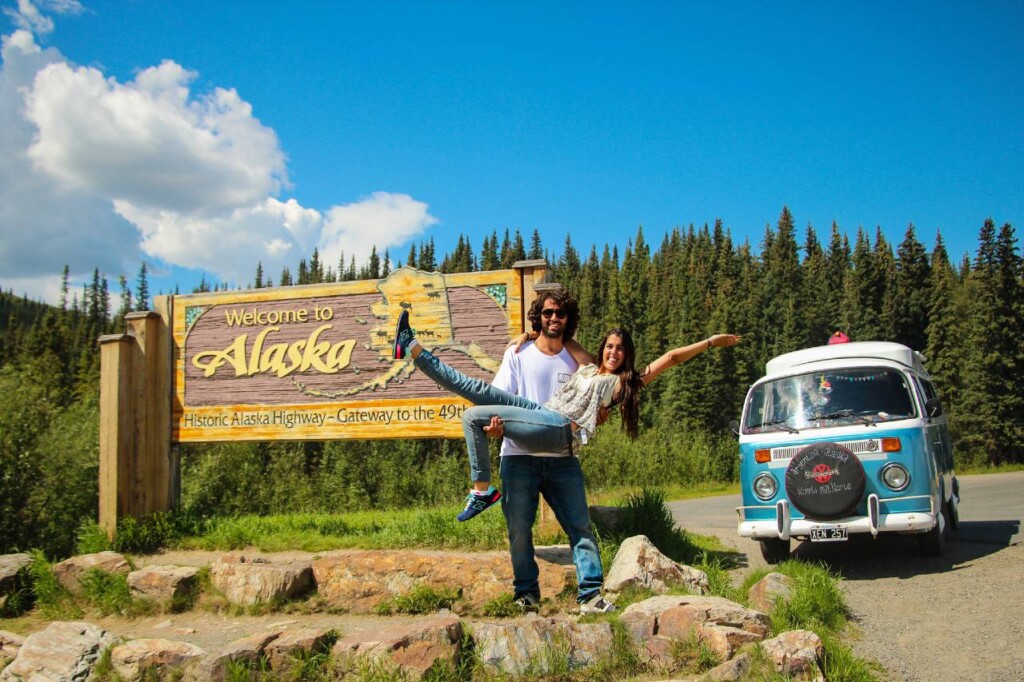


Plan your travel route
It might be easier said than done but planning a route for your Buslife adventure and sticking to it is one of the most efficient ways to reduce your carbon footprint.
For many of us, driving around in a fuel-guzzling vehicle will never sit well with our desire to live a more ethical lifestyle. However, the following driving rules will help us become more sustainable drivers.
- Plan your travel route in advance
- Where possible, choose the shortest route to your destination
- Stay a little longer at your destinations
- Drive slower. According to the Energy Saving Trust, the optimum driving speed for efficiency is between 88-106km/h.
Not only will these tips help you to be a more environmentally friendly driver, but you will also find yourself saving some money on fuel.
Need some help planning your next adventure? You’re going to love our Top 5 Most Iconic VW Bus Trips.
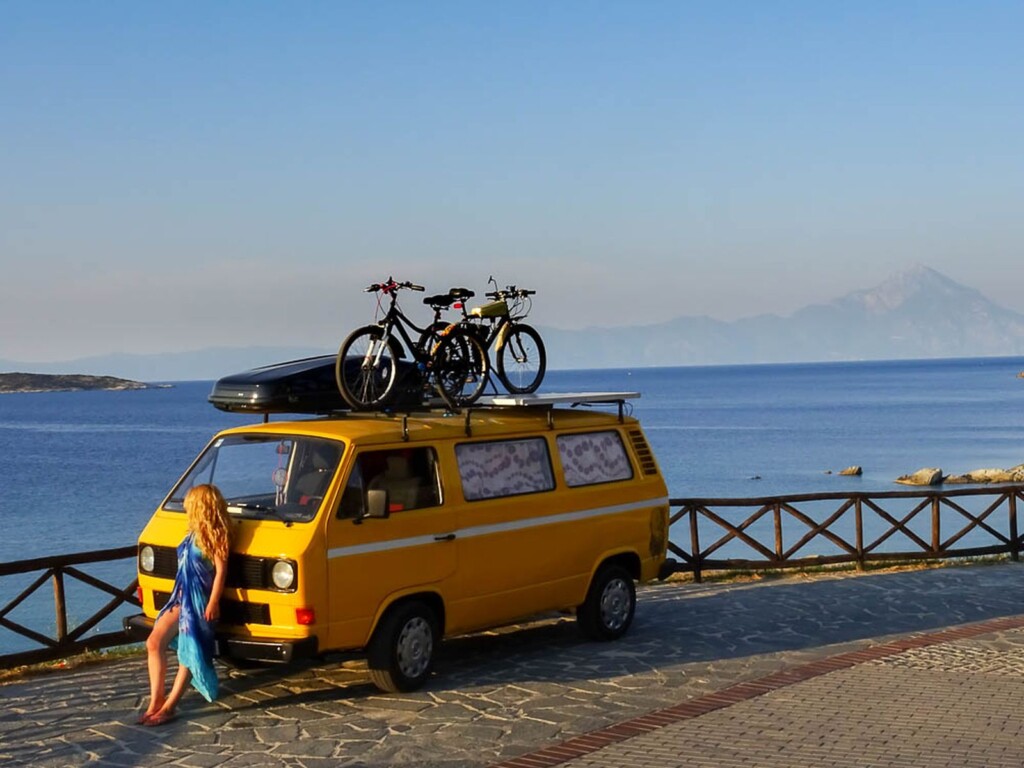


Walk or cycle where you can
While we’re on the topic of driving more efficiently when you can, why not try and ditch your VW Bus altogether in favor of two wheels!? Hook up some bicycles to the back of your vehicle so that when you arrive at your dream destination, you can take a break from life behind the wheel and explore the local area on your bike with the wind in your hair.
This folding bike is not only compact and lightweight (ideal for keeping the weight of your vehicle to a minimum), it’s also ideal for most terrain.
If you prefer to take things a little slower, why not invest in a pair of hiking boots (like these) and enjoy exploring the great outdoors.
Enjoy a plant-based diet
Did you know that if we all switched to a plant-based diet, global farmland would shrink by 75%? It’s widely known that farming is one of the most significant contributors to our carbon footprint, so it makes sense that going vegan is one of the number one ways we can rapidly reduce our environmental impact.
However, with this in mind, switching to a plant-based diet is not always an easy one, particularly when you’re traveling to a new country. Don’t be surprised if you can’t always find a vegan alternative, and remember that by enjoying a plant-based diet for the majority, you will still be helping reduce your carbon footprint.



If you’re new to veganism, grab yourself a copy of this book, The Plant-Based Diet for Beginners, packed with 75 delicious recipes to get you started.
Shop locally
Shopping locally when you can goes hand in hand with enjoying a plant-based diet. Not only will you be reducing your carbon footprint due to the reduced food miles, the suppliers you will buy from are more likely to be small producers rather than commercial. They will use fewer or no chemicals and will share your ethical values.
Even if you find that occasionally you do need to buy some animal-based products as part of your shop, you will know that the animals are less likely to have been farmed on a commercial scale by shopping locally. They will also have enjoyed higher standards of welfare.
However, we always recommend speaking to producers at markets where possible to help you understand more about their farming principles and ethics.
When you arrive at a new destination, our best advice is to seek out your nearest market and head on down to chat to local producers and fill your bags with plenty of fresh, locally sourced produce to take back to your bus and cook up a feast!
Don’t forget to take your shopping bag and reusable produce bags with you when you head off to the market!
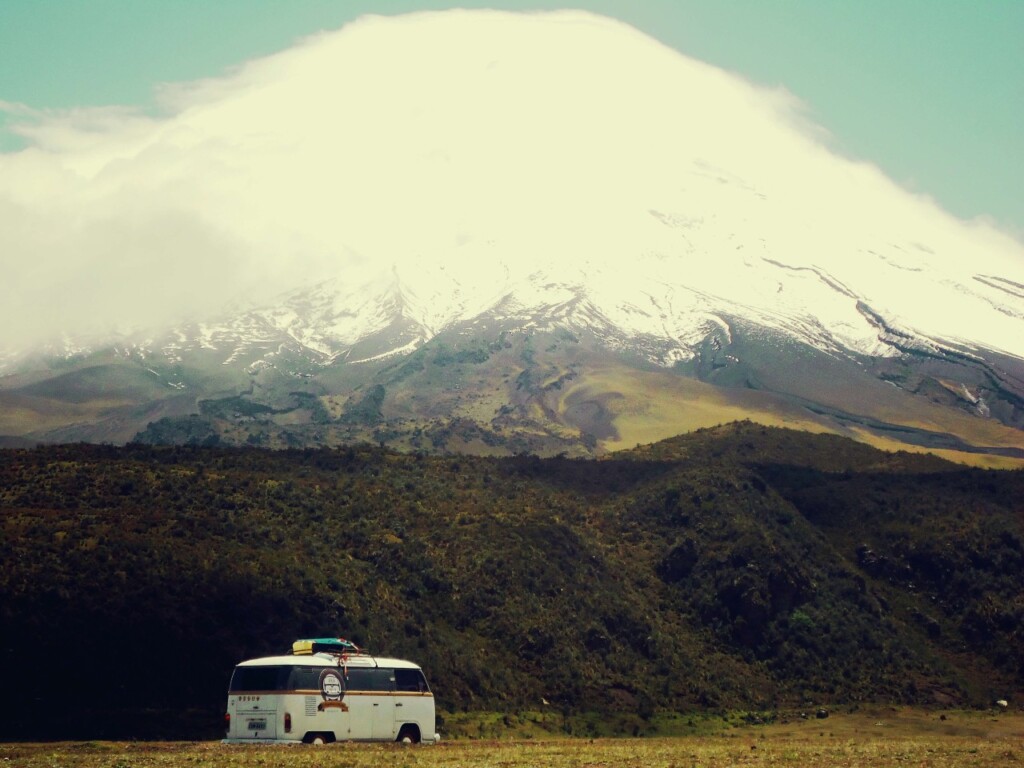


We hope this article will help you make some informed decisions about reducing your carbon footprint when living on the road. If you’re looking for more ways to enjoy an environmentally friendly Buslife, we recommend checking out our guide to the Leave no trace principles and How to reduce your waste.

